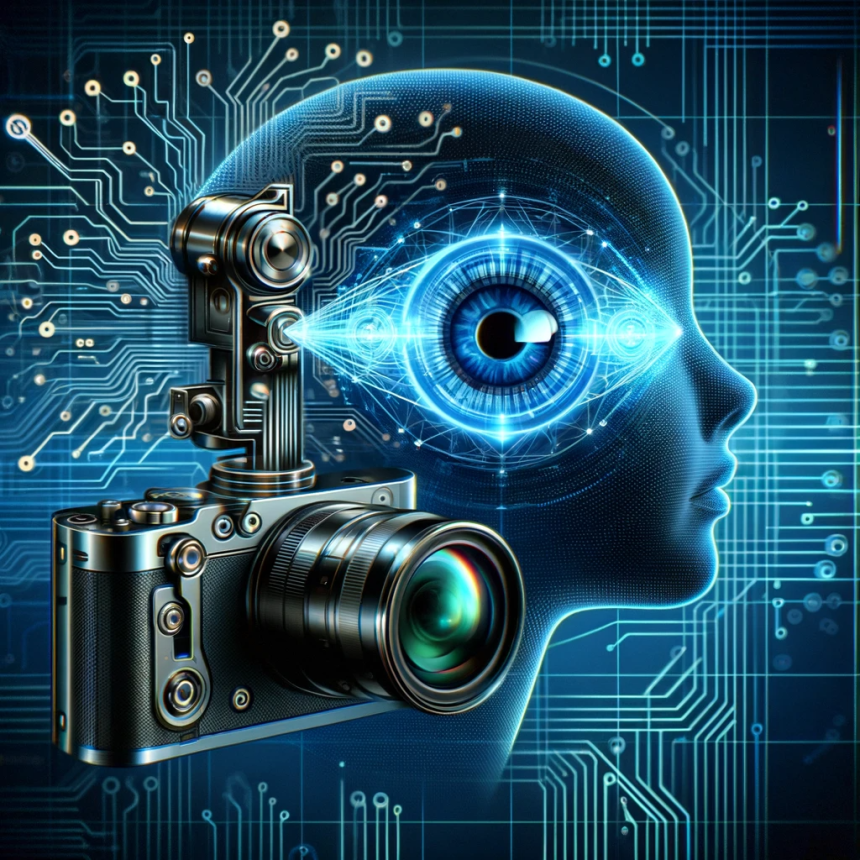Samsung is focusing on advancing camera technology with artificial intelligence to enhance human vision. The human eye, an extraordinary product of evolution, catches the world with remarkable precision and abundance. However, what if cameras can do the same function? Samsung, a leading technology company known for its innovative approach, is embarking on a groundbreaking endeavor called the “Humanoid Sensors” project. The objective is to incorporate artificial intelligence directly into camera sensors and achieve a level of visual perception comparable to that of humans by the year 2027.
Moving Beyond Megapixels: A Paradigm Shift
Conventional camera sensors prioritize gathering unprocessed data in the form of megapixels. The device’s CPU processes this information, leading to the generation of picture and video outputs. Nevertheless, this technique is subject to some constraints. It may consume a significant amount of energy, have delays, and encounter difficulties while processing intricate scenes or operating in low-light environments.
Samsung’s aim goes beyond the measurement of megapixels. Their objective is to integrate minuscule AI processors right into the sensor, enabling immediate data processing that emulates the real-time interpretation of the environment by the human eye. This offers a multitude of advantages:
- Improved image quality: AI has the ability to enhance image details, manipulate lighting, and minimize image noise in real-time, resulting in photos that are crisper, more vivid, and more realistic.
- Decreased latency: Eliminating the requirement for data to be sent to the CPU for processing leads to quicker focusing, seamless scene transitions, and enhanced responsiveness.
- Decreased power consumption: The utilization of on-sensor processing lessens the burden on the CPU, resulting in improved battery efficiency.
- Enhanced imaging functionalities: AI has the potential to provide advanced features such as instantaneous object identification, automated scene enhancement, and even depth perception, hence creating opportunities for augmented reality and other cutting-edge applications.
Obstacles and Potential Consequences
This ambitious endeavor encounters significant obstacles. Creating compact and power-efficient AI processors for integrating sensors is a remarkable technological accomplishment. Moreover, training AI models to perceive the intricacies of human vision accurately necessitates vast quantities of data and advanced algorithms.
Notwithstanding these obstacles, the potential influence of “Humanoid Sensors” is substantial. This innovation has the potential to completely transform camera technology, not just in smartphones but also in automotive, security, medical, and several other industries. Envision intelligent automobiles that possess human-like visual perception and cognitive abilities, medical imaging devices that exhibit exceptional precision in illness diagnosis, or security systems that demonstrate superhuman perceptiveness by anticipating and averting potential dangers.
The Future of Vision
The ambition of Samsung is bold, however, its capacity to revolutionize the manner in which we capture and engage with the world is indisputable. Although the year 2027 may appear far off, Samsung’s current actions are laying the foundation for a future in which cameras possess not just high megapixel counts, but also the cognitive abilities and perceptiveness of the human eye. The prospects for vision in the future are very promising.
Further Factors to Take into Account:
- Samsung is not the sole prominent technological company that is advancing the limits of artificial intelligence in camera technology. Google Pixel phones and other manufacturers are integrating artificial intelligence (AI) capabilities into their camera systems. When creating AI-powered cameras, it is crucial to address ethical considerations, including concerns about data privacy and the potential for exploitation of enhanced imaging capabilities. The future of “Humanoid Sensors” has the ability to not only imitate human eyesight, but even transcend it, so granting us powers that go beyond our inherent constraints.
Samsung’s “Humanoid Sensors” project has the ability to reshape our perception of the world by embracing innovation and addressing intricate issues. It serves as a reminder that the future of visual perception may be imminent.








